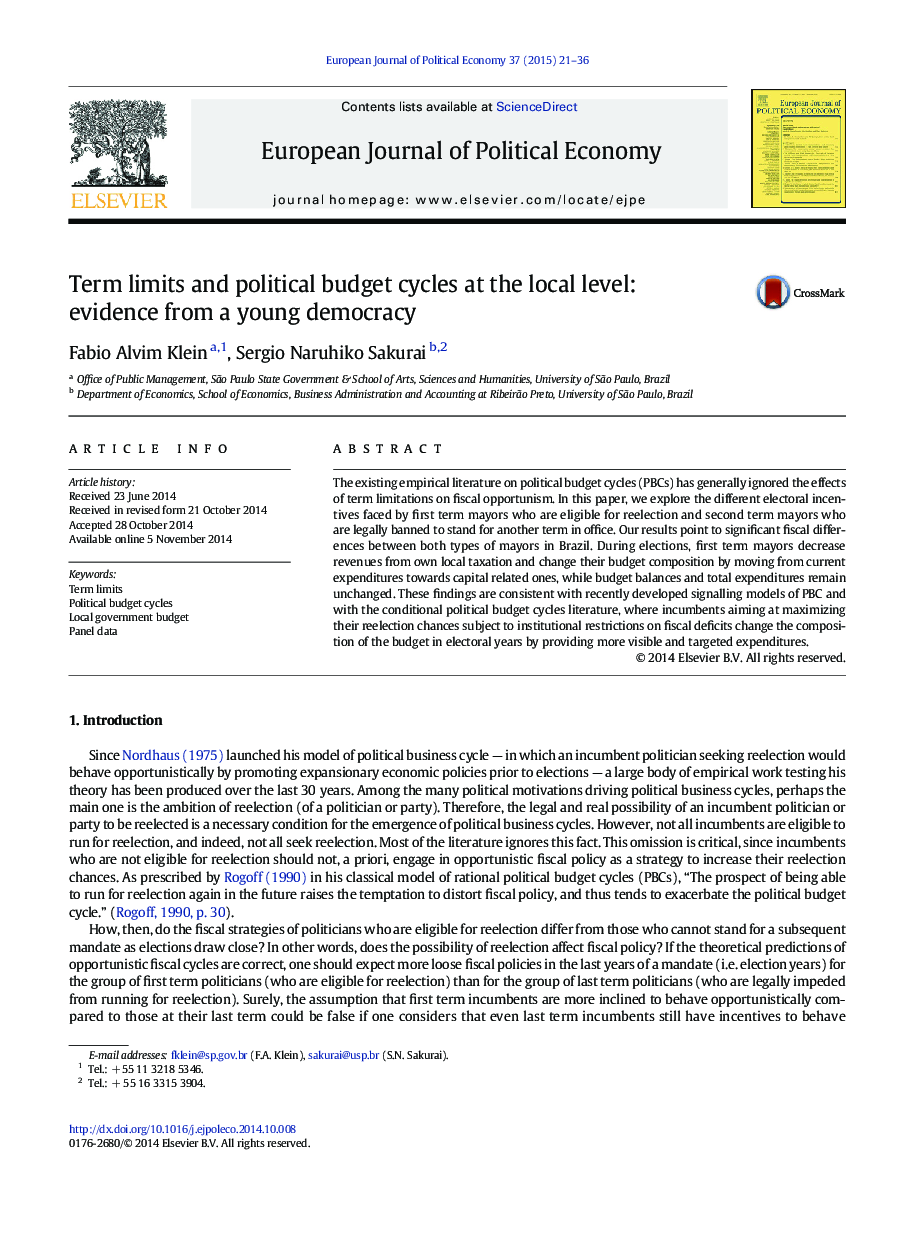| Article ID | Journal | Published Year | Pages | File Type |
|---|---|---|---|---|
| 5067961 | European Journal of Political Economy | 2015 | 16 Pages |
â¢We explore the effects of term limits on fiscal opportunism in a young democracy.â¢Significant fiscal differences exist between first and last term mayors in Brazil.â¢First term mayors reduce local taxes and change budget composition in election years.â¢This change in budget composition is done without detriment to budget balance.â¢We provide new results to the literature of signalling models of political cycles.
The existing empirical literature on political budget cycles (PBCs) has generally ignored the effects of term limitations on fiscal opportunism. In this paper, we explore the different electoral incentives faced by first term mayors who are eligible for reelection and second term mayors who are legally banned to stand for another term in office. Our results point to significant fiscal differences between both types of mayors in Brazil. During elections, first term mayors decrease revenues from own local taxation and change their budget composition by moving from current expenditures towards capital related ones, while budget balances and total expenditures remain unchanged. These findings are consistent with recently developed signalling models of PBC and with the conditional political budget cycles literature, where incumbents aiming at maximizing their reelection chances subject to institutional restrictions on fiscal deficits change the composition of the budget in electoral years by providing more visible and targeted expenditures.
